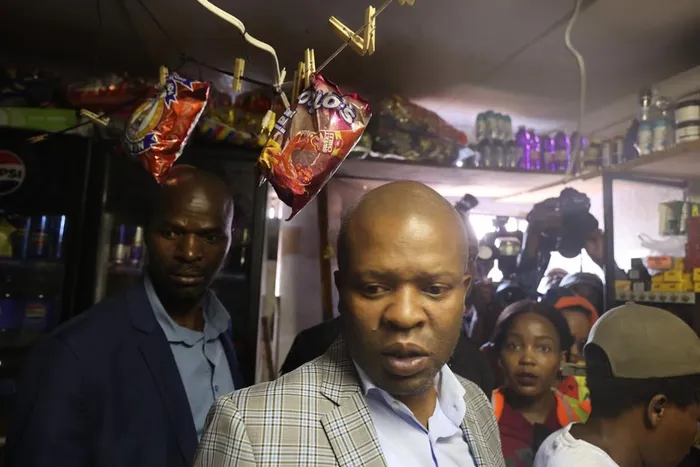Maile promises to demolish bogus spaza shops

Gauteng Finance MEC Lebogang Maile promises to demolish bogus spaza shops.
Image: X/Lebogang Maile
Gauteng Finance MEC Lebogang Maile sent a stern warning that the government would take decisive action against foreigners who are found intimidating local spaza shop owners to close their businesses.
This comes after some local spaza store owners made accusations that foreigners were bullying them, and telling them not to operate because the local business belonged to them.
Spaza shop registrations were currently under way across the country.
In case the circumstance calls for it, Maile promised that the government would provide the resources required to guarantee South Africans' safety.
He urged them to report the incidents so that they can intervene.
"We will protect our citizens against criminality and we have got that duty. We will deploy more resources to protect our citizens," he said.
Government announced the deadline extension of the spaza shop registration to February 28.
This is because many owners complained about the deadline being tight and not affording them enough time to submit their relevant documents.
On Thursday, Maile gave an update on the province's food-handling facilities and spaza store registration process in Johannesburg.
According to Maile, the number of applications from foreigners who want to run spaza shops had increased to over 2,800.
Ten days ago, the number of spaza shops that had been issued with application forms was 13,616 but due to people's participation, the number currently sits at 21,172. This is an increase of over 7,000.
Of this number, 10,389 application forms have been submitted across all municipalities in Gauteng, Maile said.
At our first media briefing, the number of applications that had been returned owing to missing documentation stood at 1,916.
Since then, the number of applications received have increased, leading to a corresponding increase in the number of returned applications, which now stands at 2,677.
"The number of applications from non-South Africans presently stands at 2,818 – an increase of 213 since the last update," he said.
Additionally, Maile warned that any spaza business constructed on municipal property, including water pipelines and electrical lines, would be demolished.
"In some instances, such as where structures are erected on critical infrastructure, there will be a need for demolition in order to protect this critical infrastructure that services communities. In such cases, demolition will only proceed where regularisation cannot be achieved.
"It is important to state that our approach to this matter is developmental. This means that demolishing structures is our last resort as we recognise the financial and economic implications of such an intervention," he said.
IOL Politics
Related Topics: